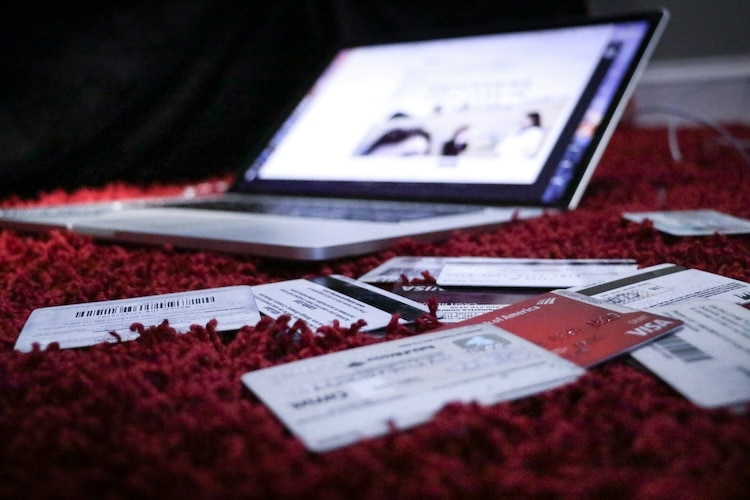
Bankruptcy Alternatives
Filing for bankruptcy can provide a fresh start for those overwhelmed by debt, but it is a serious decision with long-term implications. Before taking this step, it is important to explore all available bankruptcy alternatives. As bankruptcy attorneys, we often advise clients on various strategies to help regain control of their finances without resorting to bankruptcy. This blog post will discuss some of the most effective alternatives to filing bankruptcy, including debt consolidation, debt settlement, credit counseling, and lifestyle adjustments.
Debt Consolidation
Debt consolidation involves combining multiple debts into a single loan with a lower interest rate than individual obligations. This can make managing payments easier and potentially reduce the total interest paid over the repayment term. There are several ways to consolidate debt:
Personal Loans
Personal loans from banks or credit unions can be used to pay off high-interest credit card debt. These loans often have fixed interest rates and predictable monthly payments, making it easier to budget.
Balance Transfer Credit Cards
Balance transfer credit cards offer low or zero interest rates for an introductory period, usually 6 to 18 months. By transferring high-interest credit card balances to one of these cards, clients can save on interest and pay down the principal more quickly. Debtors should be mindful of potential transfer fees and interest rate increases once the initial introductory period ends. In addition, opening new credit card accounts may have an adverse effect on one’s credit worthiness.
Home Equity Loans or Lines of Credit
Homeowners can use the equity in their property to secure a loan or line of credit. These options often have lower interest rates compared to unsecured debt. However, it is crucial to understand the home serves as collateral, which means owners risk foreclosure if they default on the loan.
Debt Settlement
Debt settlement involves negotiating with creditors to reduce the total amount owed. This can be a viable option for individuals with a large amount of unsecured debt who are struggling to make minimum payments. Here is how debt settlement works:
Negotiating Directly with Creditors
Consumers can contact creditors directly to negotiate a settlement, explain their financial situation and propose a lump-sum payment that is less than the total amount owed. While not required to negotiate reductions, some creditors may grant a reduction if they believe it is the best way to recover a portion of the debt.
Using a Debt Settlement Company
Debt settlement companies can negotiate on a person’s behalf. These companies typically require clients to stop making payments to creditors and instead deposit funds into an account managed by the settlement company. Once a sufficient amount has accumulated, the company will negotiate settlements with the creditors. If interested in this option, be sure to fully investigate the settlement company as many charge high fees and overstate their effectiveness.
Credit Counseling
Credit counseling agencies offer financial education, budgeting assistance, and debt management plans (DMPs). These agencies can help create a plan to pay off debts over time. Credit counseling may include:
Budgeting Assistance
Credit counselors can help create a realistic budget that allows people to meet their financial obligations while still covering essential living expenses.
Debt Management Plans
In a DMP, the credit counseling agency negotiates with creditors to reduce interest rates and waive fees. Clients make a single monthly payment to the agency, which then distributes the funds to creditors. DMPs can simplify debt repayment and potentially reduce the time it takes to become debt-free. Again, take the time to ensure you are working with a reputable organization.
Lifestyle Adjustments
Sometimes, small changes in spending habits can have a big impact on financial situations. Consider the following lifestyle adjustments:
Cutting Non-Essential Expenses
Review budgets and identify non-essential expenses which can be reduced or eliminated. This may include expensive coffee shops, dining out, subscription services, and entertainment costs.
Increasing Income
Look for opportunities to increase income. This could involve taking on a part-time job, freelancing, or selling unused items.
Seeking Financial Assistance
People facing temporary financial hardship can explore available assistance programs. This might include government aid, charitable organizations, or community programs which provide financial support or resources. A good place to start is by contacting your employer provided Employee Assistance Program (EAP) plan to see if they offer financial related counseling.
Seeking Professional Advice
Before making any decisions, it is advisable to consult with a financial advisor or bankruptcy attorney. These professionals can help people understand options, assess financial situations, and develop a personalized plan to address debts.
Conclusion
Bankruptcy is a powerful tool for debt relief, but it is not the only option. By exploring alternatives such as debt consolidation, debt settlement, credit counseling, and lifestyle adjustments, people may find a solution that allows them to regain control of their finances without the long-term impact of bankruptcy. Every financial situation is unique, so take the time to evaluate options and seek professional advice to make the best decisions. With the right approach, consumers can overcome financial challenges and work towards a more secure financial future. The experienced tax, bankruptcy, and estate planning attorneys at RJS LAW are available for a no-cost consultation. Please call 619-595-1655 or contact us at RJS LAW to set an appointment.
Written by Marco Torres, Esq.

Leave a Reply